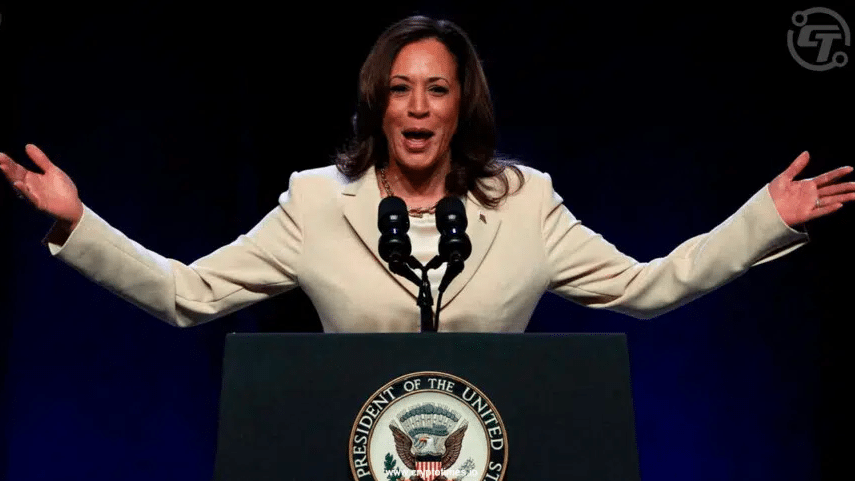In today’s rapidly evolving political landscape, Vice President Kamala Harris and former President Donald Trump find themselves locked in a statistical dead heat at 49% odds according to the latest figures from Polymarket, the premier cryptocurrency-based prediction market. This remarkable parity comes amidst an increasingly fervent race that has seen over $541 million placed in bets on the platform. This seismic shift in the betting world provides a fascinating glimpse into the intersection of politics, public sentiment, and innovative financial markets as we delve deeper into the mechanics and implications of such engagement.
Unforeseen Vice-Presidential Selection Shakes the Odds
The turning point in this tight race appears to have been Harris’s unexpected choice of Minnesota Governor Tim Walz as her vice-presidential nominee. This decision took many by surprise, as Pennsylvania Governor Josh Shapiro had been widely anticipated as the frontrunner for the position. The impact of this selection on the betting odds underscores the weight that vice-presidential candidates carry in the political arena, influencing not just public opinion but also real money on prediction markets like Polymarket.
Polymarket Odds Reflect Real-Time Sentiment
Prediction markets such as Polymarket, supported by Polygon, a cutting-edge layer two scaling solution for ethereum, offer a unique lens into the public’s real-time sentiment towards political figures and events. Unlike traditional polls, these platforms react swiftly to breaking news, providing immediate insights into how specific developments may sway electoral outcomes. The surge in Harris’s odds to match those of Trump and his running mate, J.D. Vance, highlights the dynamic nature of political betting markets in responding to campaign trails and candidate selections.
The Influence of Health and Campaign Dynamics
The fluctuating probabilities also shed light on the delicate interplay between health concerns and political campaigns. For instance, Biden’s odds plummeted to 7% following his COVID-19 diagnosis, demonstrating how sudden health issues can cast doubts on a candidate’s viability. Such situations reveal the vulnerability of political fortunes to unforeseen events and the ability of markets like Polymarket to capture these shifts with remarkable sensitivity.
Record-Breaking Engagement on Polymarket
The intrigue surrounding the 2024 Presidential Election has propelled Polymarket to unprecedented levels of activity, with the platform witnessing record trading volumes of $1 billion monthly for the first time. The spike in July alone, amounting to $343 million, not only eclipses previous months but also signifies a staggering 440% increase from the $63 million recorded in May 2024. This surge reflects growing public engagement with cryptocurrency platforms as mediums for expressing political sentiments and speculations.
Challenges Beyond Popularity
Despite its burgeoning popularity, Polymarket faces significant challenges, particularly regarding revenue generation and regulatory acceptance. The increasing scrutiny from U.S. legislators, coupled with calls for a ban on election betting over concerns of undermining democratic principles, poses a critical obstacle for the platform. Such controversies highlight the complex balance between innovative financial instruments and their potential implications for democratic processes.
In conclusion, the neck-and-neck odds between Kamala Harris and Donald Trump on Polymarket not only underscore the unpredictability of political campaigns but also illustrate the transformative potential of cryptocurrency-based prediction markets. As these platforms continue to mirror real-world events with astonishing immediacy, they offer a compelling yet contentious window into the future of political wagering and sentiment analysis. The evolving narrative of the 2024 Presidential Election, intertwined with the challenges facing prediction markets, ensures that the junction of politics and technology will remain a critical focal point in the discourse on democratic engagement and innovation.
